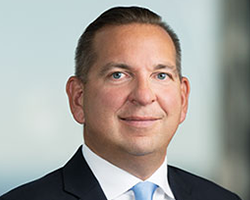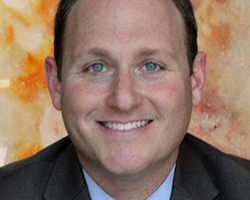
Brian Love, head of banking and fintech at Travillian, invited financial institution legal advisor Stan Orszula, partner at the law firm of Barack Ferrazzano, to comment on how banks can adopt tech strategies and better attract talent. Orszula also shared his thoughts on what’s trending in banking. Their conversation has been edited.
Brian Love: What’s your crystal ball showing?
Stan Orszula: I wish I had a crystal ball. I think we’re sort of in the PPP and federal assistance loan “high” in a weird way. Inflation is up. I expected that the pandemic would cause a lot more loan defaults; hospitality and related industries were hit hard but we did not see a wave of NPLs that would severely hurt bank liquidity. I think interest rates are going to remain low. I think there’s going to be certain areas with pent-up demand.
What the pandemic has done for bankers is really make them look at what they’re doing digitally, because people are using branches less. Although the bigger banks are obviously developing digital solutions in-house because they have the resources, community and regional banks are looking at various digital solutions on how to serve their customers best.
Hills Bank and Trust out of Hills, Iowa, developed a digital platform because they are the official bank of the University of Iowa. So their idea was: “Hey, you come to the University of Iowa and then you go out into the world, [but] you can still be a customer of Hills because of the digital infrastructure.” They made mobile banking easy. Once a customer, always a customer. So, I think you’re going to see more of that.
Iowa’s Lincoln Savings Bank and North Dakota-based Choice Bank continue to grow their Banking-as-a-Service offerings. Both banks are great examples of solid, midwestern banks that embraced technology and ran with it. This has been a huge growth area in our firm’s financial institutions and fintech practice areas.
I think the ones that do BaaS really well will survive and prosper. But even if you’re not doing BaaS, you need a good digital platform that’s secure and makes banking easy. There was a quote from a recent survey that stated, “More people prefer going to the dentist than going to the bank.” The extent that you can change that perception by making it easy, safe and secure, I think your bank is going to be well-positioned.
Brian Love: Hills Bank and Trust may not be on a lot of people’s radar. Did they lean on their core tech vendor or did they go for a partner like a Narmi or MANTL?
Stan Orszula: They did it in-house. Ken Hinrichs, their head of digital, basically built it from scratch.
Brian Love: He sounds like a bright guy, the type of talent that every bank wishes they had. Let’s talk about talent. Any lessons learned from the past year or two?
Stan Orszula: Employees are still not all on-site. How does that affect hiring? How does that affect staffing? How does that affect culture? I think it’s accelerated things 10 to 20 years, in a good way as it’s helped banks catch up to the talent race because they might have to offer flexibility now, which is more of an appeal to candidates. For example, you can go work for a bank and you’re in a situation where maybe you fly up for three or four days a month and work remotely. So, you’re indifferent geographically. And especially for a bank creating a BaaS division or more of a digital platform, it allows you to widen your talent net nationwide.

Brian Love: Is there a product or service that might not be in everyone’s periphery that you think might be the service or the product for 2022 or 2023?
Stan Orszula: Two things — payments and niche marketing.
Payments are being revolutionized. We’re going to have a lot more instant payments rather than waiting a day or two for a wire to clear. In payments, the other thing that is accelerated is banks adopting and offering some of the products that fintechs are using, like early pay.
Niche marketing to different groups with customized product offerings may explode in 2022 and 2023. I think we’re going to be at a point at a bank where you can offer cradle to grave, the whole alphabet of services. And you can do it by picking different providers. Whether it’s an app or a private label solution, I think you’re going to see a lot more niche and focus.
For example, there’s an app called Purple that’s meant for the developmentally disabled community. It allows people in that community to manage their money while not running afoul of restrictions on government aid and program eligibility.
I think it’s going to be more affinity-type products, products tailored to certain groups with certain needs. Whether it’s a hobby or an affinity or something that’s cultural or mission-driven.
Brian Love: The de novo replenishment rate has been low. I think the way de novos will stand out is to serve a very specific business sector, demographic or community.
Stan Orszula: First Women’s Bank in Chicago is a de novo bank and its focus is to serve a community that perhaps has not been served so wholeheartedly by other institutions. And we’re also helping another de novo that’s going to focus on a minority and diverse community as well. We’ve also been approached by other groups and we believe that there is some real opportunity out there for these niche bank initiatives.
Brian Love: In a prior conversation, you and I were discussing best practices on hiring. Tell me a little bit more about those trends.
Stan Orszula: As we found, working with some fintechs, some of them have great ideas, but they don’t have a lot of banking and bank regulatory IQ. I think they need talent from a bank; the idea is to find someone with a regulatory standard or background, even if it’s just for a little bit. Or somebody who maybe worked at a fintech. Maybe they never worked at a bank, but as with many fintech startups, they were probably thrown into the fire on the compliance part. And you as a bank can use their battle experience to your advantage. And it just goes back to fintechs, open banking, neobanks: They can’t do it without partnering with a bank. They have great ideas and great technology, but they’re not all staffed with people who have a lot of regulatory bank experience. That is something that is hard to come by and it’s a well-honed and well-acquired skill.
